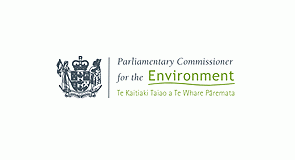
By Bernard Hickey
The Parliamentary Commissioner for the Environment, Jan Wright, has decided against a moratorium on new oil and gas drilling or 'fracking', instead making six recommendations to tighten the way such drilling is regulated.
Issuing her final report on fracking, Wright said she had considered calling for a moratorium, but decided there were laws in place that could be used to prepare for a rapid expansion of such drilling and extraction.
Wright said she had found the regulation was not currently adequate, especially if it expanded rapidly beyond Taranaki into shale-rich areas on the East Coast of the North Island from Gisborne to Hawkes Bay.
She said the pace of fracking's growth had been so fast in the United States and Australia regulators had found themselves scrambling to catch up. New Zealand needed to get ahead of the game, she said.
"Exploration wells are being drilled into the shale of the East Coast Basin – near Dannevirke, near Gisborne, and soon in Hawke’s Bay," Wright said.
"The shale in this part of the country has been compared with the Bakken and Eagle Ford rock formations in the United States where the number of wells has proliferated in just a few years," she said.
“The region is drier and very reliant on a number of key aquifers. There are major known earthquake faults, so wells would be more vulnerable to damage from seismic activity, and therefore more likely to leak into groundwater. Increasingly, the region identifies itself as a producer of premium food, and there would be conflicts between this and a mushrooming oil and gas industry."
Wright made the following six recommendations:
1. The Government should develop a national policy statement paying particular attention to ‘unconventional’ oil and gas.
2. Revision of regional council plans should include better rules for dealing with oil and gas wells. Most council plans do not even distinguish between drilling for water and drilling for oil and gas.
3. Wells need to be designed to minimise the risk of leaking into aquifers.
4. Processes around who pays if something goes wrong need to be improved. Abandoned wells need to be monitored – the older a well is, the more likely it is to leak.
5. Regulations on hazardous substances at well sites need to be better enforced.
6. The disposal of waste from wells by spreading it on farmland should be reviewed. There have been instances of farm animals grazing these areas before the breakdown of hydrocarbons is complete.
Wright said she did not want the report to be seen as giving a "big tick" to the expansion of fracking.
“I would much rather see a focus on ‘green growth’ because my major concern is the impact of the burning of fossil fuels on the global climate," she said.
Reaction
Energy and Resources Minister Simon Bridges and Environment Minister Amy Adams welcomed the release of the report, saying it was a useful contribution to the discussion and the Government would consider the recommendations.
"New Zealand’s abundance of energy and minerals resources provides us with unique opportunities to grow our economy," Bridges said. "But it’s not about development at any cost, and the Government is committed to developing our resources in a safe and environmentally responsible way," he said.
Bridges and Adams pointed to the Ministery for the Environment's release in March of guidelines for onshore oil and gas drilling, including fracking.
"These guidelines provide clear direction so that hydraulic fracturing is carried out in a robust, controlled and well regulated manner," Adams said.
“The Ministry for the Environment will be monitoring the effectiveness of the guidelines and any future review of the guidelines will be informed by the Commissioners report," she said.
Green Energy spokesman Gareth Hughes said the report had condemned the Government's regulations as inadequate and the Ministry's guidelines as "greenwash." Hughes called for a halt to fracking.
"The Commissioner says that most councils are unprepared for the expansion of the oil and gas industry and says, 'unfortunately, the Guidelines report published recently by the Ministry for the Environment does little to assist,'" Hughes said.
Labour Environment Spokeswoman Moana Mackey said the report's recommendations should be implemented immediately.
"The Parliamentary Commissioner for the Environment’s report concludes that while oil and gas drilling can be done safely, the oversight and regulation of the activity is inadequate, inconsistently applied and has not kept pace with the rapid advances in industry and technology," Mackey said.
"It also concludes that it is not credible to simply extrapolate the Taranaki experience to other regions which is always the Government's go-to position whenever anyone raises concerns about the industry. The differences between the East Coast and Taranaki mean that the industry will have a very different look on the east of the country," she said.

We welcome your comments below. If you are not already registered, please register to comment
Remember we welcome robust, respectful and insightful debate. We don't welcome abusive or defamatory comments and will de-register those repeatedly making such comments. Our current comment policy is here.